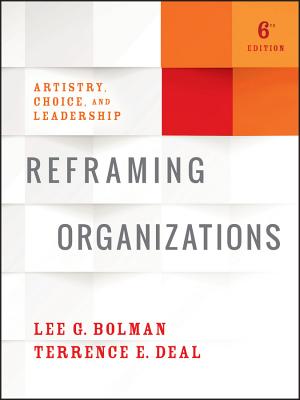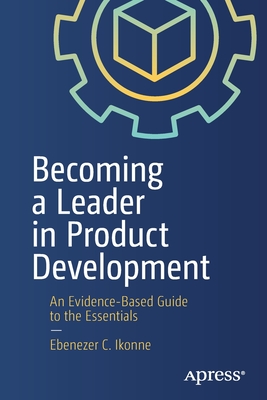Organizational Psychology: A Scientist-Practitioner Approach (Hardcover)
暫譯: 組織心理學:科學家-實踐者方法 (精裝版)
Steve M. Jex, Thomas W. Britt
- 出版商: Wiley
- 出版日期: 2008-02-28
- 售價: $1,197
- 語言: 英文
- 頁數: 648
- 裝訂: Hardcover
- ISBN: 0470109769
- ISBN-13: 9780470109762
下單後立即進貨 (約5~7天)
相關主題
商品描述
<內容簡介>
Now in a Second Edition, Organizational Psychology: A Scientist-Practitioner Approach provides readers with a thorough overview of both the science and practice of organizational psychology. The new edition provides more practical examples, material on personal difference and personality, and considerations of diversity to fulfill the needs of today's professionals in training.
<章節目錄>
Preface.
Chapter 1. Introduction To Organizational Psychology.
What
Is Organizational Psychology?
Organizational Psychology In Context.
The
Scientist-Practitioner Approach.
Historical Influences In Organizational
Psychology.
Recent Past And Beyond.
The Chapter Sequence.
Chapter
Summary.
Suggested Additional Readings.
Chapter 2. Research Methods And Statistics.
Methods Of Data Collection.
Special Issues In Data Collection.
Special Issues In Data Collection.
Statistical Methods In Organizational Psychology.
Chapter Summary.
Suggested Additional Readings.
Chapter 3. Attraction And Socialization.
The Recruitment Process: An
Organizational Perspective.
The Recruitment Process: The Applicant's
Perspective.
Organizational Socialization.
The Impact Of Diversity On
Organizational Socialization.
Chapter Summary.
Suggested Additional
Readings.
Chapter 4. Productive Behavior In Organizations.
Defining Productive
Behavior.
Organizational Citizenship Behavior.
Innovation In
Organizations.
Chapter Summary.
Suggested Additional Readings.
Chapter 5. Job Satisfaction And Organizational Commitment.
Job
Satisfaction.
Organizational Commitment.
Chapter Summary.
Suggested
Additional Readings.
Chapter 6. Counterproductive Behavior In Organizations.
Defining
Counterproductive Behavior.
Ineffective Job Performance.
Employee
Absenteeism.
Employee Turnover.
Less Common Forms Of Counterproductive
Behavior.
Chapter Summary.
Suggested Additional Readings.
Chapter 7. Occupational Stress.
A Brief History.
Approaches And
Terminology.
Occupational Stress Terminology.
Occupational Stress
Models.
Workplace Stressors.
Reducing The Impact Of Workplace Stressors.
Cross-Cultural Occupational Stress Research.
Chapter Summary.
Suggested Additional Readings.
Chapter 8. Theories Of Motivation.
Defining Motivation And Theoretical
Approaches.
Need-Based Theory Of Motivation.
Cognitive Process Theory Of
Motivation.
Self-Determination Theory.
Job-Based Theories Of Motivation.
The Practical Value Of Motivation Theories.
Chapter Summary.
Suggested Additional Readings.
Chapter 9. Organizational Applications Of Motivation Theory.
Some Basic
Assumptions.
Behaviors Organizations Attempt To Influence.
Organizational Reward Systems.
Motivation Through The Design Of Work.
Organizational Disciplinary Procedures.
Chapter Summary.
Suggested
Additional Readings.
Chapter 10. Leadership And Influence Processes.
Defining Leadership.
General Approaches To Leadership.
Modern Theories Of Leadership.
Power And Influence In Organizations.
Chapter Summary.
Suggested
Additional Readings.
Chapter 11. Introduction To Group Behavior.
Why Do People Join Groups?
Defining Characteristics Of Groups.
Group Structure.
Stages Of Group
Development.
Inter-Group Dynamics And Behavior.
Types Of Inter-Group
Interactions.
Predictors Of Inter-Group Interaction Patterns.
Inter-Group Conflict.
Improving Quality Of Inter-Group Relations.
Chapter Summary.
Suggested Additional Readings.
Chapter 12. Team Effectiveness.
Defining Team Effectiveness.
Models
Of Team Effectiveness.
Determinants Of Team Effectiveness.
Enhancing The
Effectiveness Of Teams.
The Future Of Teams In Organizations.
Chapter
Summary.
Suggested Additional Readings.
Chapter 13. Organizational Theory And Design.
What Is An "Organizational
Theory"?
Major Organizational Theories.
Determinants Of Organizational
Design.
Recent Innovations In Organizational Design.
Research On
Organizational Design.
The Future Of Organizational Design.
Chapter
Summary.
Suggested Additional Readings.
Chapter 14. Organizational Culture.
Defining Organizational Culture.
Models Of Organizational Culture.
Manifestations Of Organizational
Culture.
The Development Of Organizational Culture.
Measuring
Organizational Culture.
Changing Organizational Culture.
The Impact Of
Organizational Culture.
Chapter Summary.
Suggested Additional Readings.
Chapter 15. Organizational Change And Development.
What Is Organizational
Development And Why Is It Used?
A Brief History Of Organizational
Development.
The Theory Base Of Organizational Development.
Organizational Change Interventions.
Conditions Necessary For Successful
Organizational Change.
Evaluation Of Organizational Development Programs.
Special Issues In Client -- Consultant Relationships.
Chapter Summary.
Suggested Additional Readings.
References.
Author Index.
Subject Index.
商品描述(中文翻譯)
<內容簡介>
現在已經推出第二版的《組織心理學:科學家-實踐者方法》為讀者提供了組織心理學的科學與實踐的全面概述。新版本提供了更多實用的範例、個人差異與人格的資料,以及多樣性考量,以滿足當今專業人士的培訓需求。
<章節目錄>
前言。
第一章 組織心理學導論。
什麼是組織心理學?
組織心理學的背景。
科學家-實踐者方法。
組織心理學的歷史影響。
最近的過去及未來。
章節順序。
章節摘要。
建議的附加閱讀。
第二章 研究方法與統計。
資料收集的方法。
資料收集中的特殊問題。
組織心理學中的統計方法。
章節摘要。
建議的附加閱讀。
第三章 吸引與社會化。
招聘過程:組織的視角。
招聘過程:申請者的視角。
組織社會化。
多樣性對組織社會化的影響。
章節摘要。
建議的附加閱讀。
第四章 組織中的生產性行為。
定義生產性行為。
組織公民行為。
組織中的創新。
章節摘要。
建議的附加閱讀。
第五章 工作滿意度與組織承諾。
工作滿意度。
組織承諾。
章節摘要。
建議的附加閱讀。
第六章 組織中的反生產性行為。
定義反生產性行為。
無效的工作表現。
員工缺勤。
員工流失。
較不常見的反生產性行為形式。
章節摘要。
建議的附加閱讀。
第七章 職業壓力。
簡史。
方法與術語。
職業壓力術語。
職業壓力模型。
工作場所壓力源。
減少工作場所壓力源的影響。
跨文化職業壓力研究。
章節摘要。
建議的附加閱讀。
第八章 動機理論。
定義動機與理論方法。
基於需求的動機理論。
認知過程的動機理論。
自我決定理論。
基於工作的動機理論。
動機理論的實用價值。
章節摘要。
建議的附加閱讀。
第九章 動機理論的組織應用。
一些基本假設。
組織試圖影響的行為。
組織獎勵系統。
通過工作設計來激勵。
組織紀律程序。
章節摘要。
建議的附加閱讀。
第十章 領導與影響過程。
定義領導。
領導的一般方法。
現代領導理論。
組織中的權力與影響。
章節摘要。
建議的附加閱讀。
第十一章 團體行為導論。
為什麼人們會加入團體?
團體的定義特徵。
團體結構。
團體發展的階段。
團體間的動態與行為。
團體間互動的類型。
團體間互動模式的預測因子。
團體間衝突。
改善團體間關係的質量。
章節摘要。
建議的附加閱讀。
第十二章 團隊效能。
定義團隊效能。
團隊效能模型。
團隊效能的決定因素。
提升團隊效能。
組織中團隊的未來。
章節摘要。
建議的附加閱讀。
第十三章 組織理論與設計。
什麼是「組織理論」?
主要的組織理論。
組織設計的決定因素。
組織設計的最近創新。
組織設計的研究。
組織設計的未來。
章節摘要。
建議的附加閱讀。
第十四章 組織文化。
定義組織文化。
組織文化模型。
組織文化的表現。
組織文化的發展。
測量組織文化。
改變組織文化。
組織文化的影響。
章節摘要。
建議的附加閱讀。
第十五章 組織變革與發展。
什麼是組織發展,為什麼要使用它?
組織發展的簡史。
組織發展的理論基礎。
組織變革的介入。
成功組織變革所需的條件。
組織發展計劃的評估。
客戶與顧問關係中的特殊問題。
章節摘要。
建議的附加閱讀。
參考文獻。
作者索引。
主題索引。































